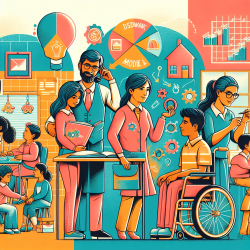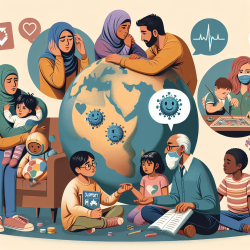Introduction
As a speech-language pathologist, understanding the broader environmental factors that can impact child development is crucial. Recent research titled Alkalinity responses to climate warming destabilise the Earth’s thermostat offers insights into how climate change can affect the Earth's natural processes, including those that influence child health and development. This blog explores how these findings can inform your practice and encourage further research.
The Research Overview
The study conducted by Lehmann et al. (2023) investigates the effects of climate warming on the Earth's alkalinity fluxes. Alkalinity, primarily generated through rock weathering, plays a critical role in the Earth's carbon cycle. The research highlights that climate warming could significantly alter these fluxes by 2100, impacting CO2 sequestration in the oceans. This change is contingent on various factors, including erosion rates, carbonate proportion, and mean annual temperature.
Implications for Speech-Language Pathologists
While the direct link between alkalinity and speech-language pathology may not be immediately apparent, understanding environmental changes can provide context for the challenges children face. Here are some key takeaways:
- Environmental Awareness: Recognizing how climate change affects natural processes can help practitioners understand potential environmental stressors impacting child development.
- Holistic Approaches: Incorporating environmental factors into assessments and interventions can lead to more comprehensive care strategies.
- Advocacy and Education: Use your platform to educate families about the broader impacts of climate change and advocate for policies that protect children's health and development.
Encouraging Further Research
For practitioners interested in contributing to the field, consider the following research opportunities:
- Longitudinal Studies: Investigate how long-term exposure to altered environmental conditions affects speech and language development in children.
- Interdisciplinary Collaboration: Work with environmental scientists to explore the intersection of climate change and child development.
- Policy Impact: Research the effectiveness of policies aimed at mitigating climate change on child health outcomes.
Conclusion
Understanding the environmental context in which children develop is essential for speech-language pathologists. By integrating findings from climate research into practice, you can enhance your ability to support children's development in a changing world. To read the original research paper, please follow this link: Alkalinity responses to climate warming destabilise the Earth’s thermostat.










